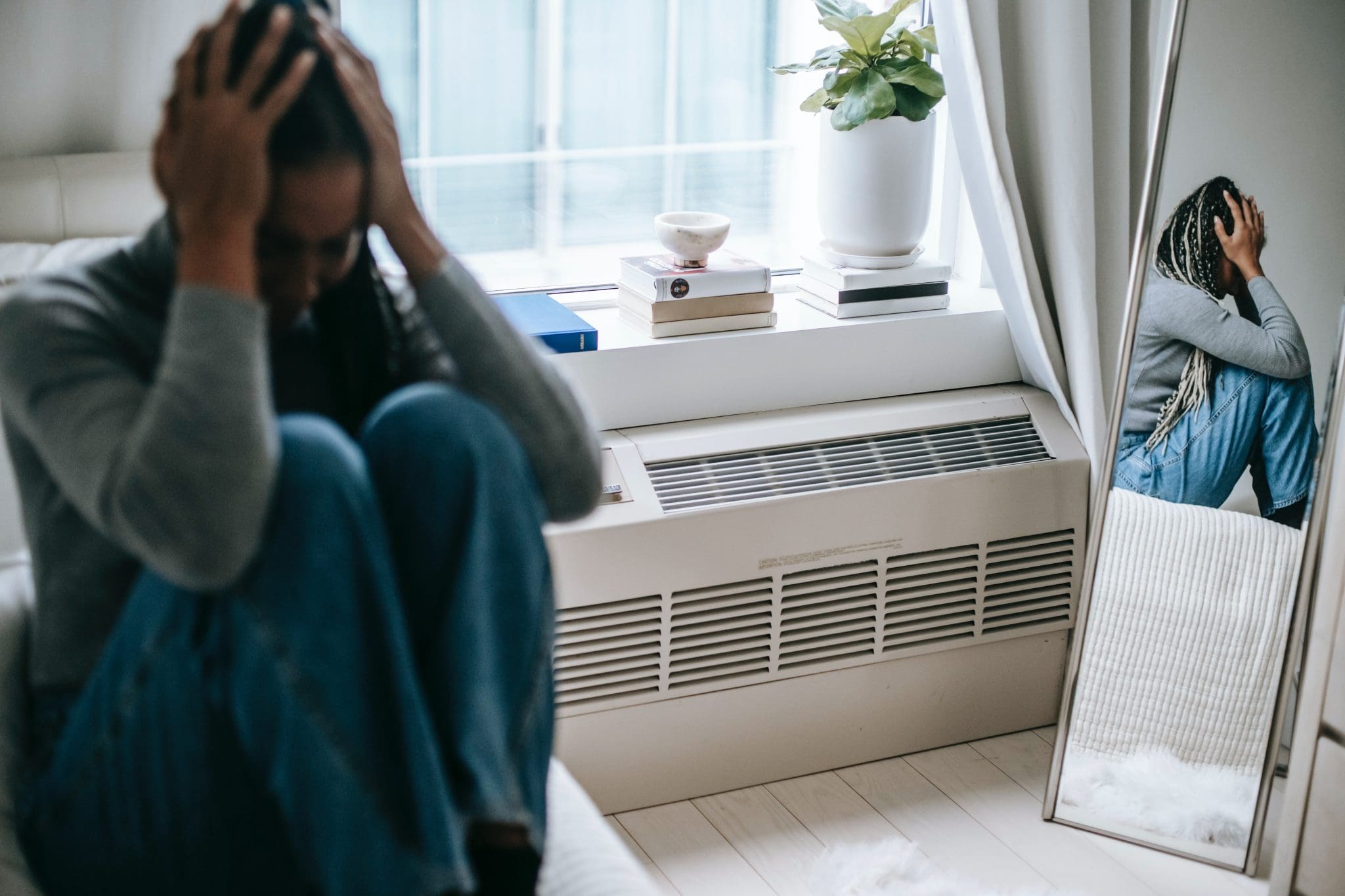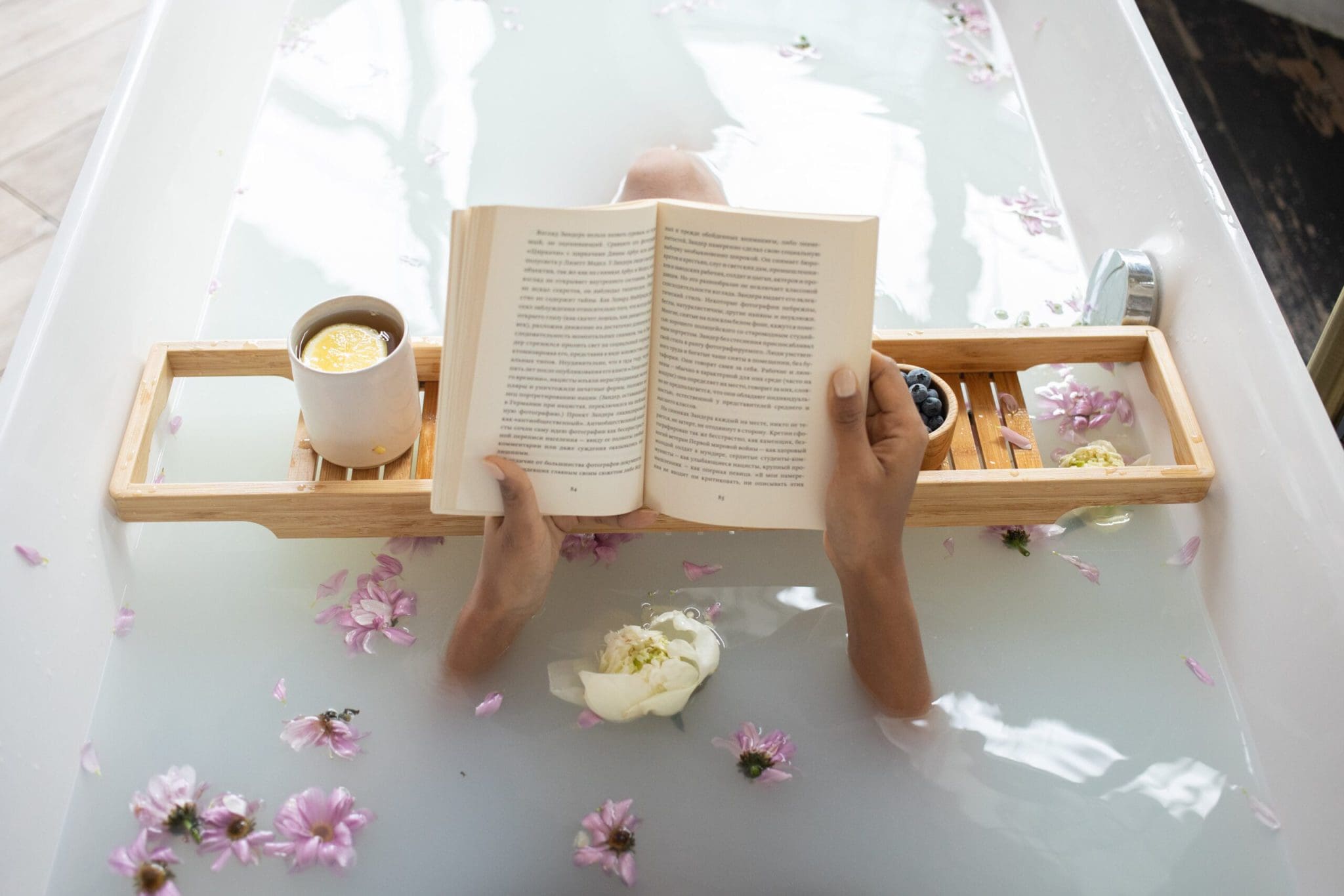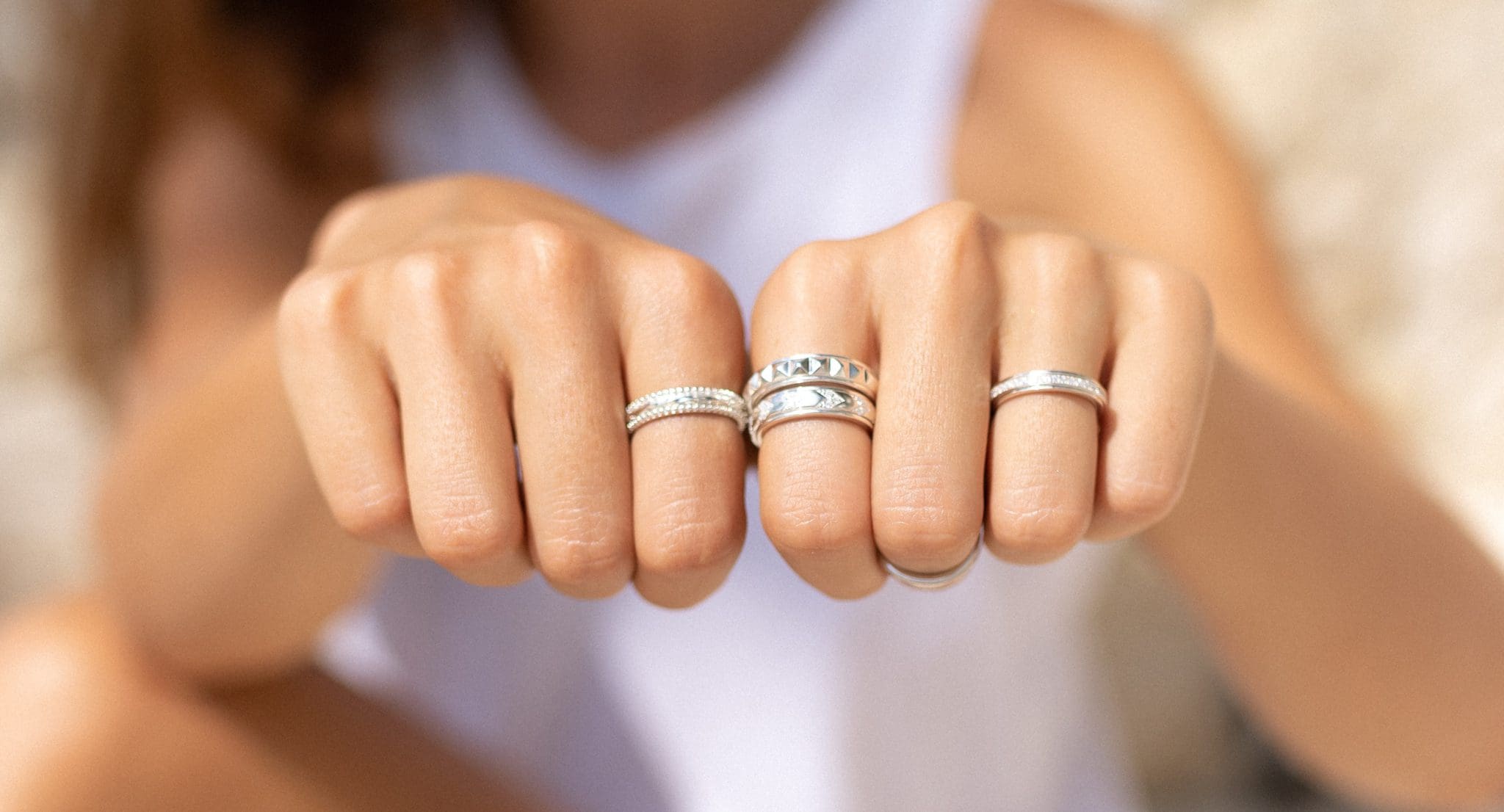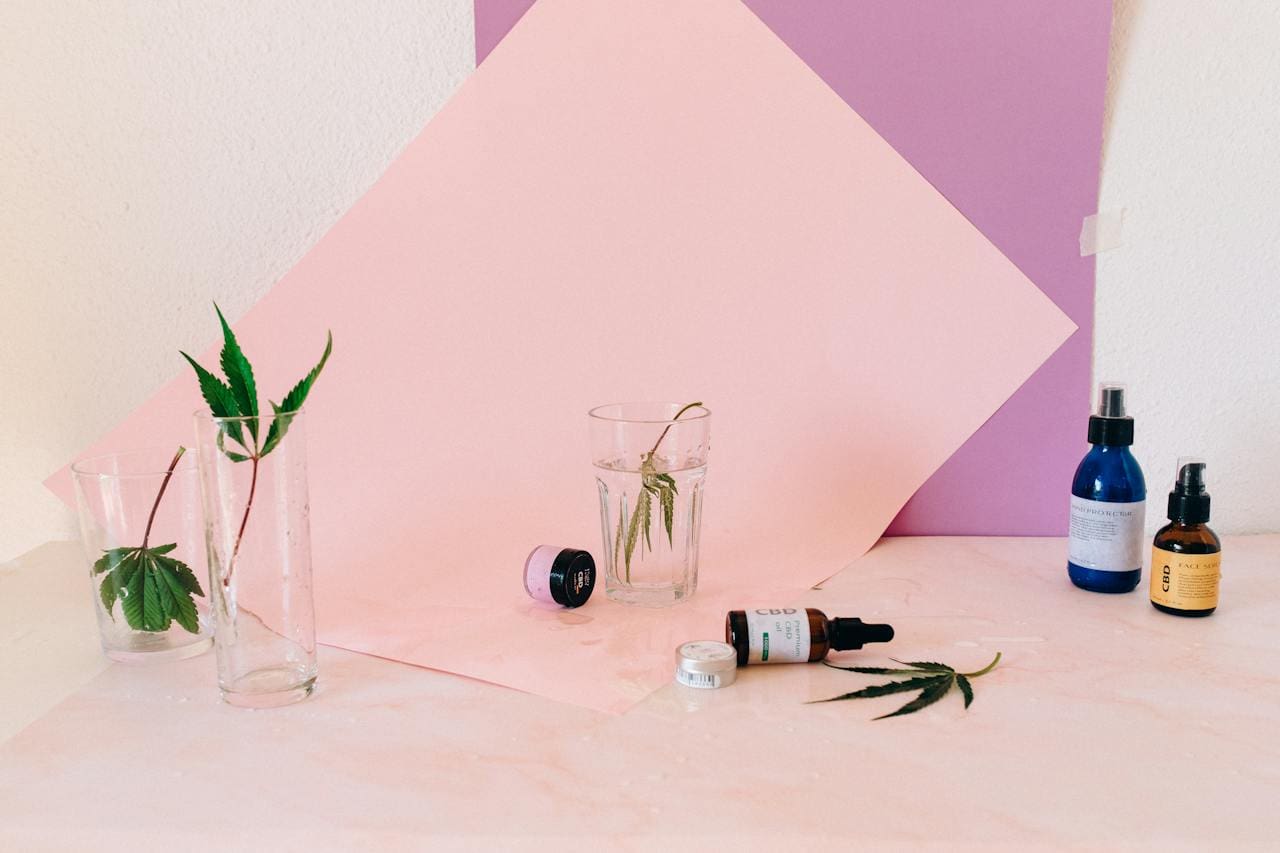Full Disclosure: Clicking on these links could mean a tiny commission for me, at no extra cost to you.
Relaxation should come easy to us but let’s get serious: it doesn’t. Between juggling work, family responsibilities and a social life, it can be hard to catch a breath for ourselves. But it’s crucial to find some ‘me-time‘ in the midst of all this chaos, especially if you struggle with anxiety or another mental health condition. Relaxing not only feels good but it also has great health benefits for both your body and mind, such as helping you recharge and bounce back from the everyday stress and anxiety to managing depression during darker times. And guess what? It’s easy to learn how to relax, even if you feel like you’re the type of person who just can’t relax. So, if you’re ready for some much-needed chilling, let’s dive into these essential relaxation tips.
Ready to Unlock the Power of Your Breath?
Experience a calmer mind, less stress, and better mental health with a FREE month of breathwork classes from Inward Breathwork. These expert-guided sessions are designed to help you reconnect, refocus, and find inner peace — anytime, anywhere.
Why Learning How to Relax Is Essential
Relaxation is not just about lying on the couch or taking a nap. It’s about actively engaging in methods that calm both your mind and body. When stress accumulates, it can lead to physical issues such as headaches, muscle tension, and digestive issues. Mentally, it can cause anxiety, irritability, and trouble sleeping.
Therefore, learning ways to relax is crucial for your physical and mental health. Relaxation is a skill that, when mastered, can dramatically improve your quality of life.
Understanding the Importance of Relaxation Techniques
If you’re constantly thinking, “I can’t relax no matter what I do,” then you likely haven’t found the right relaxation techniques that suit you. There are all kinds of calming methods available, and finding the right one often requires some experimentation. The key is to identify the methods that allow you to fully disconnect from your stressors, so you can rejuvenate your mental and physical state.
Effective Relaxation Techniques to Help You Relax
When it comes to unwinding, the simpler, the better! After all, what good would a relaxation technique be if the process was complicated and stressed you out before even getting started? The good news: you don’t need to set aside a ton of hours from your busy schedule to practice relaxation techniques. Even if you have just five minutes to yourself, you can easily sneak in a simple relaxation technique. And if you have more time than that, all the better.
Here are some effortless ways to help you relax, relieve stress and ease anxiety.
1. Deep Breathing Exercises
If you’re looking for an easy way to unwind, breathing exercises are a great go-to strategy. You can practice them anywhere, anytime, and they can effectively calm your stressed-out mind and body. For example, using breathing techniques can ease tense muscles, relieve pain, detoxify the body, lower blood pressure, relieve stress and anxiety and boost your mood. This relaxation technique also activates the parasympathetic nervous system, which is responsible for inducing relaxation in your body. And they only take a couple of minutes to do.
Here’s how to do it:
- Find a quiet place to sit or lie down.
- Close your eyes and breathe in deeply through your nose for a count of four.
- Hold your breath for four counts.
- Exhale slowly through your mouth for a count of six.
- Repeat this cycle five to ten times.
Feel free to make this breathing exercise your own too. There are different variations and types of breathing techniques to explore to find the ones that work for you.
Take a Breath of Anxiety Relief
Inward Breathwork offers expertly guided breathwork sessions to help reduce stress and elevate your emotional well-being. Start your practice today with a 14-day free trial — and feel the difference in every breath.
2. Moments in Nature
When life gets overwhelming, taking a break in nature, even for just a few minutes, can work wonders for your stress levels and have a powerful impact on your mental health. Various studies have shown that nature has a positive effect on your mood, and what you see, hear, and experience in nature can instantly improve your mental state. Spending time in nature has also been linked to a reduction in negative emotions, including symptoms of anxiety, depression, and psychosomatic illnesses such as tension headaches, insomnia, irritability, and indigestion. So the next time you’re feeling overwhelmed, take a break and step outside to enjoy the natural world around you.
You can go on a hike or take a camping trip to reap the benefits of nature or you can go for a short walk or sit in a nearby park to help you relax and unwind. And if you’re unable to access nature in person, looking at images of greenery or listening to nature sounds can also have a calming effect.
3. Meditate More
“But I can’t meditate. It just doesn’t work for me”. Listen, the harder meditation is for you, the more you need it.
Meditation is a centuries-old practice that remains one of the most powerful relaxation techniques today. Through the deliberate focus of attention, meditation helps to still the mind and cultivate a state of peace and relaxation. Recent research shows that using meditation apps like Headspace for just 10 days can result in an 11% decrease in stress, and after 30 days, users reported a 32% decrease. (Psst: you can get 40% off here.)
To practice basic meditation, follow these steps:
- Sit in a comfortable position with your back straight and hands resting in your lap.
- Close your eyes and take a few deep breaths to settle into the moment.
- Choose a point of focus such as your breath, a word (mantra), or even a mental image.
- When your mind wanders, gently guide your attention back to your point of focus.
Start with five to ten minutes daily and gradually increase the time as you become more comfortable. Meditation not only helps you relax, but it also promotes emotional resilience, mental clarity, and overall well-being.
Here are some of our top recommended meditations for relaxation and anxiety relief:
- Zen Harmonics – Get a Free Audio Here
- Binaural Beats Meditation by Ennora
- Inna Peace – Get a Free Anxiety Relief Sample
Tap Into Anxiety Relief Right Now
→ Mindfulness Meditation – Access over 2,000 guided meditations, personalized stress relief practices, and expert-created plans to help you stay grounded and focused. Get Started
→ Breathwork – Join guided breathwork sessions crafted to reduce anxiety and promote emotional balance from anywhere, anytime. Get Started
3. Progressive Muscle Relaxation
When we’re mentally stressed, our bodies often feel it too. We start to feel tense in certain areas such as our shoulders, neck, and jaw, which may even lead to physical problems like headaches, backaches, TMJ and stomach issues. These physical sensations can also make it difficult to relax. The good news: by releasing physical tension with physical therapy for neck pain or by practicing relaxation techniques, we can better manage our stress levels and learn how to relax.
Progressive muscle relaxation (PMR) is a method that involves tensing and then slowly releasing each muscle group in your body. This practice helps to alleviate physical tension and makes you more aware of how stress affects your body. To practice PMR:
- Start by tensing the muscles in your toes for five seconds and then slowly release.
- Move upward, tensing and releasing muscles in your legs, stomach, chest, arms, and head.
- As you release each muscle group, focus on how your body feels.
By practicing this technique regularly, you’ll learn to identify and release tension, which will help you relax more easily in stressful situations.
4. Release Nervous Energy with a Spinning Anxiety Ring
While fidgeting may have been frowned upon during school, studies show that rhythmic and repetitive movements, also known as fidgeting, can have positive effects. Fidget toys and anxiety rings are useful tools for particularly helpful for people with anxiety who tend to fidget or make small movements when they feel anxious, restless, impatient, or nervous.
Spinning rings, also known as fidget rings, also known as spinner rings, anxiety rings, worry rings, or meditation rings, provide an outlet for these movements, helping to calm a person’s nerves, relieve stress, and serve as a distraction in overstimulating environments. These anxiety rings are made of a moving band that allows you to spin and restore a sense of calm, amongst many additional benefits.
5. Write Down Your Thoughts
Writing can be an effective tool when learning how to relax, as it can help relieve stress and improve mental health. Taking a few moments to jot down your thoughts and emotions can help you gain clarity and perspective, while also getting all of those anxious, negative thoughts out of your mind. It can also help you identify sources of stress and work through challenging emotions, so you can finally experience a sense of relief and relaxation. Whether you use a notebook or a notes app, taking time to write down your thoughts can be a valuable addition to your stress management toolkit.
6. Visualize Your Calm
Learning how to relax can be as simple as finding your happy place. Guided imagery involves focusing on positive, peaceful images to calm your mind. By visualizing these calming scenes, you can distract your mind away from stress, allowing you to relax.
Follow these steps for guided imagery:
- Close your eyes and picture a place that makes you feel peaceful.
- Engage your senses—imagine the sounds, smells, and colors around you.
- Spend a few minutes fully immersing yourself in the scene before gradually returning to reality.
Guided imagery can be an effective way to quickly reduce anxiety and stress, particularly when you can’t relax in chaotic environments.
This is also an excellent technique for anxiety, as you can escape and go to your happy place anytime you’re feeling anxious and overwhelmed.
7. Remind Yourself of The Good Things
When times are tough and stress is taking over, making a list of all of the things you’re grateful for can be all you need for a boost of positivity and stress relief. This is because when we are stressed, we often dwell on negative thoughts and experiences. Focusing on the positive aspects of life can help calm our minds. So something as simple as writing down three positive things that happened to you today, even if they seem insignificant, can help shift your focus to the good.
Whether it’s enjoying a good cup of coffee or having a productive meeting at work, start acknowledging the positive aspects of your day can help reduce stress and promote relaxation. Not good at lists or need some help breaking free of the negativity clouding your mind? Use gratitude cards to find gratitude in each day and learn how to relax.
8. Mindfulness Meditation
Mindfulness meditation is about bringing your attention to the present moment without judgment. By focusing on your breathing, bodily sensations, and surroundings, you can quiet the mind and reduce stress. Here’s a simple way to practice mindfulness:
- Sit comfortably in a quiet space.
- Close your eyes and focus on your breath, the rise and fall of your chest, or any bodily sensations.
- When your mind wanders, gently bring your attention back to your breathing.
- Continue for five to ten minutes, gradually increasing the duration as you become more comfortable.
This way to relax helps train your mind to be present and reduces the habit of ruminating over stressors from the past or future.
🌿 Ready to Heal? Find Your Perfect Online Therapist Now
Anxiety is treatable — and BetterHelp makes support accessible and affordable. With 20,000+ licensed therapists and pricing starting at just $65/week, it's never been easier to get help. Take the free quiz and get matched with your ideal therapist today.
9. Yoga, Tai Chi, and Qigong
Science is now starting to confirm what our ancestors knew 5000 years ago: coordinating breath and movement provides a mental focus that can calm a busy mind.
Yoga is an effective tool in reducing stress and anxiety. Not only does it help improve flexibility and relieve physical tension, but the movements and posture can also help alleviate pain and release physical blockages, like muscle knots. The emotional and mental health aspect of yoga, brought on by breathing exercises, can also help release negative emotions and tension. So, grab a new yoga mat (and maybe some tissues) and get ready to start releasing.
Tai chi originated in ancient China as a form of self-defense, but today it is primarily used to promote good health. It is a gentle, low-impact form of exercise that is suitable for individuals of all ages. Now, there are various tai chi styles, but all of them share the same fundamental principles:
- Slow, gentle movements: The movements are slow and fluid, and you continue to move throughout the exercise.
- Precise postures: Specific postures are held as you move your body.
- Mental focus: You are encouraged to let go of distracting thoughts and focus your attention during the practice.
- Deep, relaxed breathing: You should maintain deep and relaxed breathing throughout the tai chi practice.
Qigong, pronounced as “chee-gong,” is a traditional Chinese practice that focuses on both mental and physical well-being. Qi refers to “breath” or “energy,” and Gong translates as “exercise” or “skill.” Qigong has its roots in Chinese culture and medicine. It is a meditative movement practice that can enhance your mental and physical health. Research studies have demonstrated that Qigong is effective in managing health issues ranging from high blood pressure and chronic illness to anxiety, stress, and even neck pain.
Try both Tai Chi and Qigong here.
What to Do When You Can’t Relax
It’s common to experience moments where you feel like you just can’t relax. Stress can build up to the point where it feels overwhelming. Here are some strategies to help break through that barrier:
- Change your environment: Sometimes a change of scenery can help. Step outside for a walk, spend time in nature, or simply move to a different room.
- Limit stimulants: Caffeine, sugar, and even digital stimulation from phones or computers can contribute to heightened stress levels. Limiting these stimulants can make it easier to relax.
- Talk to someone: Sometimes stress needs an outlet. Whether it’s a friend, family member, or therapist, talking about your stress can help release it.
Final Thoughts on How to Relax
Taking a few minutes away from a stressful situation or breaking away from your usual routine and thoughts can provide enough space and distance to help you feel more peaceful. If you find yourself still struggling after learning how to relax or are experiencing a mental health crisis, it’s important to reach out and seek professional help.
FAQs About How to Relax Using Effective Relaxation Techniques
1. What are some quick ways to relax when I’m short on time?
If you’re short on time, deep breathing exercises or mindfulness meditation for just five minutes can quickly calm your nerves and reduce stress.
2. How often should I practice relaxation techniques?
For the best results, try to incorporate relaxation techniques into your daily routine. Even 10-15 minutes a day can make a significant difference.
3. What should I do if I can’t relax even after trying these techniques?
If you’re still having trouble relaxing, consider consulting a therapist or healthcare provider. They can offer personalized guidance and support to help manage stress more effectively.
4. Can relaxation techniques help with sleep?
Yes, relaxation techniques like deep breathing, progressive muscle relaxation, and meditation can help calm the mind and body, making it easier to fall asleep and stay asleep.
5. Are there any apps that can guide me through relaxation techniques?
Yes, there are several apps like Mindfulness, Headspace and The Tapping Solution that offer guided meditations, breathing exercises, and other relaxation methods.
6. How long does it take to see the benefits of relaxation techniques?
Some people feel immediate relief from stress, while others may need to practice consistently for a few weeks before noticing significant changes in their stress levels.
Additional Resources
At Anxiety Gone, we believe in healing together. We’ve partnered with trusted wellness organizations to bring you the most effective tools, insights, and support. Some links may earn us a commission — always at no extra cost to you.
Join The Club
Connect with our private self-care community for daily support, exclusive tips, and inspiration. Join us today
Talk Therapy
Get matched with licensed therapists online through BetterHelp and begin your healing today. Start now
Hims/Hers
Receive personalized, affordable mental health care + medication from home — no insurance required. Learn more
Mental Health, Right to your Inbox
Subscribe to our newsletter for a place to rest your mental health and find ways to support your journey. Sign up
Emotional Freedom Technique
Tap your way to calm with scientifically backed stress relief. Our readers receive a 14-day free trial! Try EFT now
Mindfulness App
Access 2,000+ guided practices to support your mental health wherever you are + exclusive discount when you upgrade Try it
Online Breathwork
Experience calm and reset your nervous system with guided sessions and receive your first month free . Get started
Find a Helpline
If you need immediate support, visit our directory to find help near you. See helplines















































